It’s been four years since a White supremacist murderer took the lives of nine innocent people at the Emanuel African Methodist Episcopal Church in Charleston, South Carolina.
The Reverend Clementa Pinckney, the church’s pastor and a state senator; the Reverend Daniel Simmons, Sr.; Myra Thompson; Susie Jackson; Tywanza Sanders; Ethel Lance; the Reverend DePayne Middleton Doctor; and the Reverend Sharonda Coleman-Singleton were all lost in a senseless, hateful act, leaving a gaping loss for their families and loved ones. The massacre shocked the city, the state and the nation as a whole.
Four years later the families are still coming to terms with their losses, and ESSENCE had the opportunity to sit down with Nadine Collier, the youngest child of Ethel Lance, and Jennifer Pinckney, Clementa Pinckney’s widow, to hear and share their stories of survival.
Nadine Collier: A Story of Forgiveness
Nadine Collier acknowledges that while she’s doing “okay,” she still hasn’t quite reached a point of full acceptance when it comes to what happened to her mother, but “each day it’s getting closer.”
“We haven’t gotten the chance to grieve yet. Sometimes I have my moments. My mind just winds back as far as doing different things for my mom,” Collier said. “It hasn’t got there.”
A smile lights up her face as she describes her mother, the love that she has palpitating across the living room of her North Charleston home.
“[She was] a wonderful woman, a powerful woman, a strong woman. She was a survivor,” Collier said. “Also, my friend… The best thing about my mom, [she was] someone I could come to, talk to on the phone, day in and day out, and gossip about all kinds of stuff.”
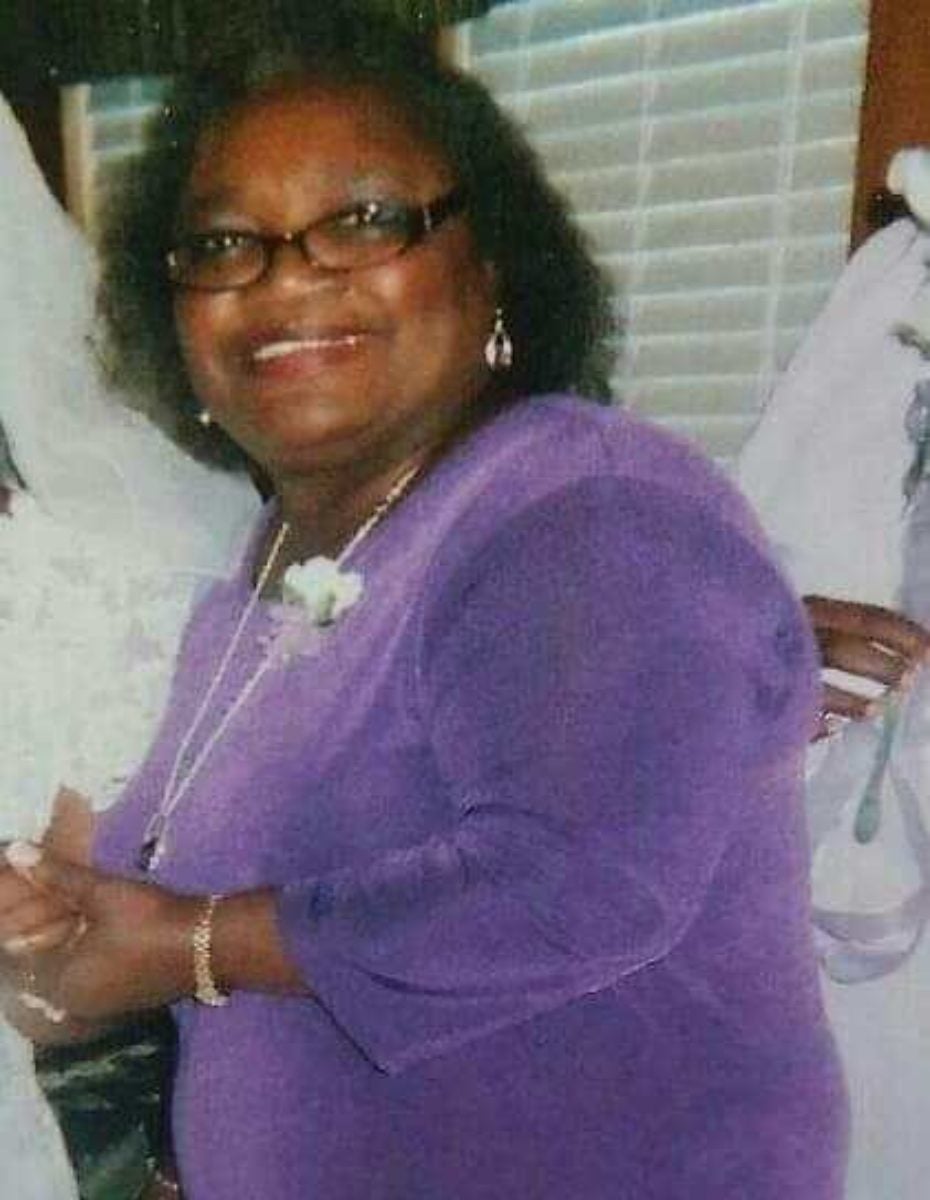
It is perhaps striking for some to realize then that Collier was one of the first to directly offer forgiveness to the killer mere days after he was arrested. That too is something she credits to her amazing mother and her faith in her God.
“It was like something came over me,” she told ESSENCE, describing the day of the murderer’s bond hearing. “When I got up there and I spoke, I could hear my mom telling me, ‘No, don’t do this lady.’ ”
“So I got to this point. I said, ‘Lord, I need you. I need you now.’ And, that’s when all the words just flowed right on out me. I forgave him. And I know a lot of people liked it. A lot of people didn’t like it, but they have to understand what forgiveness means,” Collier emphasized. “It’s not for that person who has done something wrong to you, it’s for yourself, so you can live and breathe another day because when you keep all that anger inside you, you’re defeating the purpose.”
Collier said that her ability to offer forgiveness has helped her work through the loss of her mother.
Filming and being a part of the documentary Emanuel, which covers the tragic shooting and is released today (Monday, June 17, on the anniversary of the shooting), has also been a part of her healing process.
“We wanted the world to know what we’re going through, what kind of strength that we have, what kind of power that we have,” she said. “And we want the world to know and hear from us. Not hear from other people. Hear the truth from us, feeling what we are going through.”
Visiting her mother’s grave during the filming and seeing that represented also was part of Collier’s healing process. She told ESSENCE that she changes her mother’s flowers every month nowadays, slowing down on her weekly visits after some self-reflection.
“When I visited my mama’s grave, that part gave me some kind of relief, because I want her to know that everyone will know who she is. I will let everybody know who she is and as long I’m living, they will know who she was,” she said.
There were some parts of the film, however, that were still difficult for Collier. She recalls, her lips twisting, when officers caught up with and arrested the murderer—something she only saw during the film.
“They made is seem like they were arresting a kid…. This boy, this child, has killed nine innocent people. And y’all going to put y’all gun away when y’all caught up with him?” she said in disbelief.
“I don’t like that. I don’t care if you’re White or Black, orange or purple. You’re a murderer and you should be [a] danger to society, and they were treating him like he was the king,” she added. “Are you kidding me? Treat him like you would treat any criminal.”
Still, everyday life, especially in the United States is wrought with triggers for survivors and families of survivors. A June 5 report by ABC News shows that there have been two mass shootings per month within the first five months of 2019. The May 31 Virginia Beach workplace shooting, which claimed 12 victims, has been the deadliest shooting so far. In the four years since the Emanuel shooting, these massacres continue to happen in places of worship, in schools and in workplaces.
“You’re not safe nowhere,” Collier said. “You’d think that the church will be a safe place that you to go. To me it’s not. I get scared every time. When I go to church, and I sit down, I am thinking, Will somebody crazy come through the door? I keep turning, looking behind my back, and when they talk about Bible study, that gives me the chills.”
Collier vividly remembers the first time she went back to Mother Emanuel after the shooting. It was on her mother’s birthday the year that she died.
“It was scary for me. It was cold. It didn’t feel the same,” she said. “I know when I was going to church I would always see her. She’d be the first person I see, but now I’m going to the church that she gets killed at, [and] I can’t see her again. [It’s] very painful for me. And right now, I don’t attend that church. There’s too much memories for me.”
Mother Emanuel is now a church Collier has no interest in setting foot in.
“I will never be able to go back to Emanuel Church,” she said firmly. “I can’t do it. My heart will never do it.”
There is still a lot of shock surrounding her mother’s death for Collier. Another vivid memory is the call she got when she realized her mother was gone.
She arrived at the hospital where they brought the injured members of the Bible study, and she waited for three or four hours…possibly longer. When she and her husband finally decided to drive to the Embassy Suites hotel, she got a call from her niece.
She screamed out.
Once she got to the hotel, she remembers, people were grabbing her and carrying up the stairs.
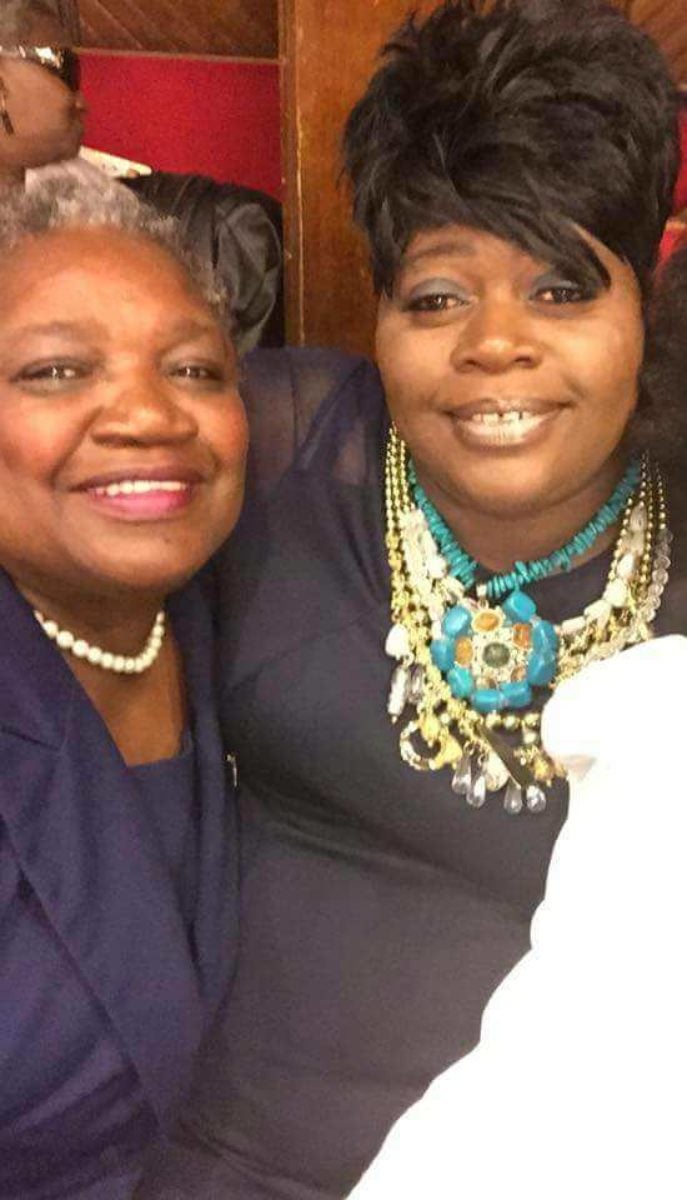
“They carry me in this room. There was the coroner in there, some preachers in there, some of my family was in there, and they said, ‘Who you are?’ ” Collier recalled as her voice started to crack with tears. “And, I said, I’m Nadine Collier, I’m Ethel Lance’s, youngest child.’ And they said, ‘Well, we need to let you know that your mom was one of the ones who got killed.’
“I started screaming and crying again, and I told them, I said, ‘I need to see her.’ They said, ‘I’m sorry, but we can’t let you see her.’ But I said, ‘I need to hold my mama. I need to see my mama, hold my mama one more time.’ They wouldn’t let me see her,” Collier said, her tears flowing freely. “That was the hardest thing for me, that you can’t see this person ever again. And I talked to her earlier that day. And, that night she was gone away from me.”
That inability to see her mother one last time is the reason why Collier keeps on coming back to a sense of shock.
“I want her to know that I sat there, and I waited…on her,” she said. “I waited for her to come to the hospital and if they didn’t come and take me, I’d still be waiting on her.
Despite this, Collier insists that she feels whole, all thanks to her faith.
“I’m whole because I got Christ, I got Jesus. I believe in a man that makes anything happen for you, that makes ways out of no way. As long as I have that strength, and I believe in that faith, I’m good,” she said. “In spite of everything that has happened, [the killer] can’t take my joy away from me because of what he has done. I will to continue to worship God whether in church or not in church.”
And she knows her mother would be proud of her.
“She would say, ‘You’re not hurting anybody. You’re not being disrespectful [to] anybody and you’re doing a wonderful job,’ ” Collier said confidently. “ ‘You’re just doing a wonderful job of representing me because I know what type of person you are.’ So I know she’s looking like, ‘That’s my child.’ ”
“I have a family. I have a husband, I have a daughter. I have a grand[child]. That’s my future. I’ve got to live on, because I know if my mom had the chance to come back right now, I know she would tell me, she’s not coming back,” she added. “She’s in a better place and I know she would tell me, ‘you go ahead and do what you need to do.’ I’m okay.”
But more importantly for Collier is that those who read her story or watch the documentary truly understand how powerful forgiveness is.
“What I want [people] to learn from me [is to] understand forgiveness is power,” she said. “And I’m going to leave it just like that.”
Jennifer Pickney: A Story Of Strength
Jennifer Pinckney describes her experience as an “emotional rollercoaster.” The pastor’s widow acknowledges that she still attends counseling once a month, though with the grace that only a mother could possess she expressed gratitude that her two daughters, Eliana and Malana, are no longer in counseling.
“Something I can say is just last night, I was a ball of tears,” Pinckney told ESSENCE. “The entire load is on me, and I think about Clementa every day. I think about what happened, and how it happened, and I think about what my girls are missing out on, and just our overall family, what we’re missing out on.”
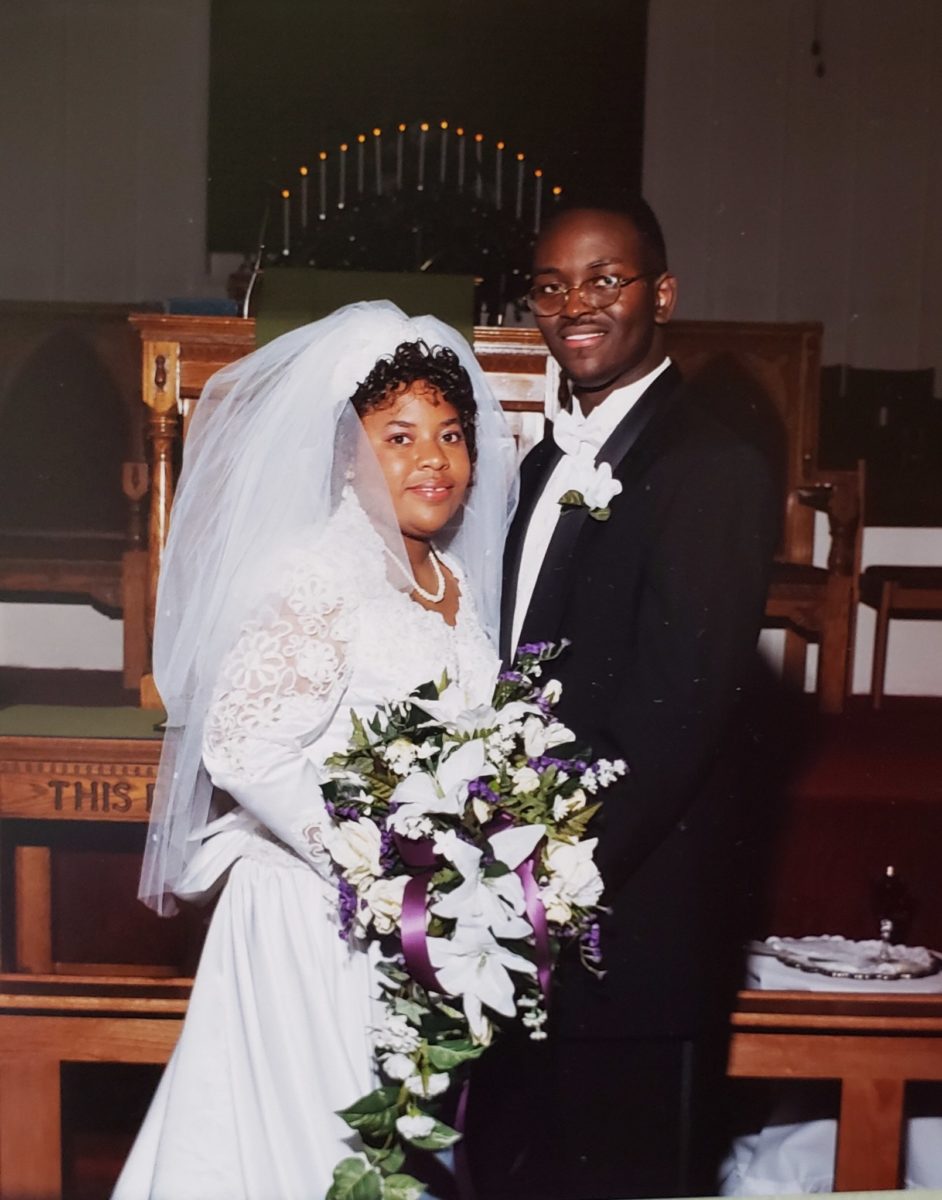
“It’s very difficult and I still get emotional. I still ask the question ‘why’. It was a senseless crime that did not have to happen, and I don’t never want anyone to feel the way I’m feeling right now,” she added. “I do miss him, terribly. He was my soulmate. He was the love of my life, so it’s still very difficult.”
But still, Pinckney is insistent that her girls’ lives do not radically change more than it already has, nor that they suffer more than they already have due to the loss of their father.
“Clementa and I, we had goals. We had our individual goals. We had couple goals. We had family goals, goals with the girls, and I just know that I don’t want them to suffer or to just not be able to do the things that we had planned for them, or the things that they were already doing,” she said. “I don’t want them to go lacking, so if I have to do extra for them to continue the activities that they’re doing, then that’s what I’m going to do. I don’t want them to feel that well because daddy’s no longer here, we can no longer do this, or we can no longer do that.”
“I want them to feel like they can grow. They can be like anyone else, and they can do like anyone else. It’s difficult, but they’re my hearts and when I look at them, I see Clementa and I just know he would want them to continue,” Pinckney added. “He would want me to continue, and just keep my head up and keep pressing forward.”
Clementa Pinckney was well known within his community. After all, he was the pastor of the historic Mother Emanuel and he was a state senator. But what Jennifer Pinckney remembers is a lively, bubbly, playful yet calm man.
“He had a title, but he wasn’t about titles,” Pinckney said. “He was one that was willing to help out. He was just a kind-hearted, good-natured, God-fearing man.”
Pinckney is also featured in the Emanuel documentary, where she talked about her husband, the trial of the murderer and other events.
So far, she has already seen the end product twice.
“I’ve told family members that are going to see the previewing of it soon, bring your tissues because it is very emotional,” she said. “For me I reflect back on the day when the tragedy actually took place. I see Clementa up there on the screen and it just makes me miss him even more.”
Her daughters have also seen the film. Pinckney is adamant about not keeping certain things away from them.
“They enjoyed it, and thought it was well put together, and I also thought it was well put together,” she said. “I usually don’t hide or keep things from my daughters because with social media, they can find out a lot, so I’m going to try to tell them upfront so that I can explain things to them, and if they have questions, then they can ask me.”
Pinckney’s daughters are clearly her world, she brought Malana, her youngest, with her on the day she sat down with ESSENCE in North Charleston. Malana was also with her on that night four years ago when the killer started his rampage. The pair, Malana only 6 at the time, barely escaped the violence, having been in another room.
Pinckney remembers trying to impress upon her young daughter that it was important to keep quiet. She covered Malana’s mouth with her hand at the time. Malana in turn covered her mother’s mouth.
She also remembers when they finally got out and the news was eventually broken to them that Clementa Pinckney was killed.
“The coroner asked me to sit down beside her and I wouldn’t sit down. In my mind I knew that Clementa was gone because if Clementa were still alive, he would have found some way to get a message to me,” she said. “But when I didn’t hear from him, I knew that he was gone. For me, it was just the final hope that he was still alive. That’s why I didn’t want to sit in that chair. She motioned for me to sit down and I told her, ‘No,’ because I didn’t want to hear what I knew she was going to say.”
There was a time, Pinckney acknowledged, where in her mind she could pretend that her husband was still away on a trip. His car not being at the house allowed her to feel that he was just away somewhere else. When the car was finally returned to their residence, reality came down.
“The first time that I actually broke down [was] when they pulled his car in the yard, and I broke down because I knew he would not be without his car,” she said. “He had not too long just had gotten that vehicle…and he was so proud of it. To see that car without him in it was a breaking point for me.”
But Pinckney was adamant to remain strong for her girls. In fact, the mother of two credited her daughters with keeping her grounded. Eliana went to dance the following morning as a matter of fact, with Pinckney being willing to accept any decision that her daughter made, whether it was to go or not.
“I woke Eliana up and I said, ‘Eliana, I understand. You can cry. You can let it all out, and I’m about to break down,” Pinckney recalled. “And she looked at me and she said, ‘Mama, I don’t have to cry…. My daddy is with me and he will always be with me, matter of fact, my daddy’s right here beside me right now,’ and she says, ‘I want to go to dance today.”
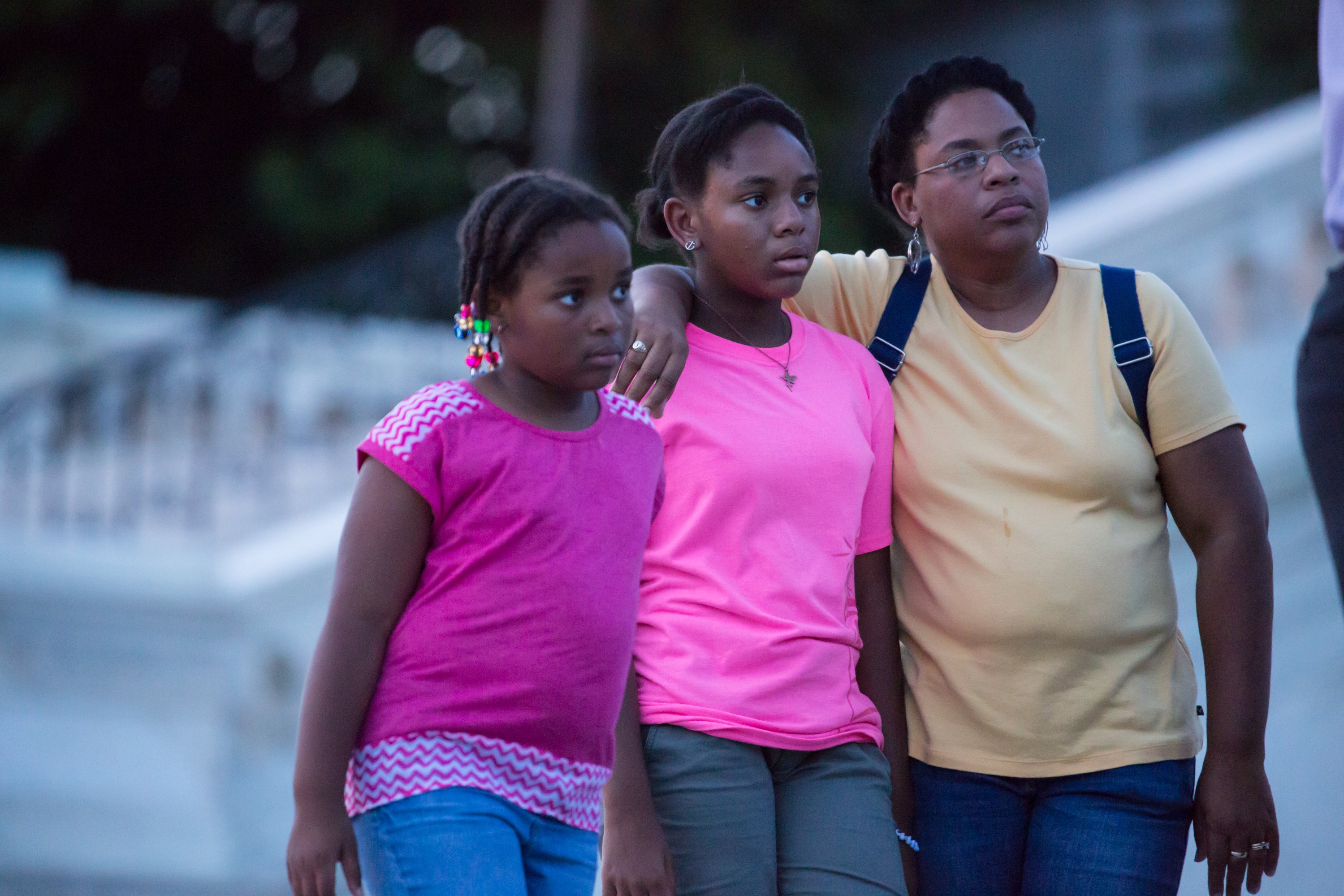
“I could not cry because I’m like if my baby can be strong, so can I. I’ve always looked at the two of them and both of them always been strong, and if I feel like I need to cry, mama’s going to take a shower, and I’ll go in the bathroom and I’ll let it out, but when my girls see me, they’re going to see a strong figure,” she added. “I think it’s probably been maybe this last year or so, they’re probably seen me shed a few tears, but not just bawling like I did in the beginning because I just refuse to let my girls see that. I wanted them to see a strong person, and I had to be strong for them.”
Being that the family doesn’t live in Charleston also made it somewhat easier. But returning to Emanuel on occasion often gave her pause, knowing that her husband should have been behind the pulpit. Since the tragedy, she has only been around the church a few times, namely for events such as the Clementa Pinckney Health Fair, which offers a variety of health screenings and also which provides food and clothing for the homeless.
This year, neither she nor the girls have any intention of going to the church.
“The girls will be at dance intensive. I always spend the anniversary going to the cemetery, and the girls and I and my sister-in-law, we normally would go, but this year I just … I just don’t want to go to church,” she said. “I don’t want to be in Charleston, and so I won’t.
Pinckney said that the Virginia shooting just last month definitely had an impact on her and brought back a lot of trauma.
“I think the Virginia shooting did a number on me because I can relate to those families,” she said.
The plethora of shootings, the seeming rising of hate, the lack of God are all things that Pinckney also says she contends with.
“It’s just a lack of love. It’s a lack of God. We don’t respect each other. We don’t respect each other’s differences and opinions,” she added. “There is a lack of love out there. Everyone, I feel, thinks that their way is the right way, and they don’t value just other people’s differences. No one is alike and no two people are alike, and I don’t think you want to be around someone that’s exactly like you because you don’t learn and you don’t grow, and so you have to learn to accept other people’s difference. How can you learn? How can you grow if you can’t accept differences?”
Even though the Confederate flag was taken down in South Carolina, even as people honor the victims and the families of Mother Emanuel, Pinckney doesn’t think very much has changed.
“Usually when a tragedy happens, everyone always feels like, ‘Oh, we need to do this. We need to do that. How can we stop it?,” she said. “And then after a while, you don’t hear anything and you won’t see anything, so it just kind of stops until the next tragedy strikes someplace else, and then it kind of brings it back up. We just have a tendency to forget, and we just move on, and we even have a tendency to forget the families.”
“A lot of people talk about we want to stand together and united but there still just seems to be like a lot of problems,” she added. “More racial problems, more hate has seemed to have come out, and it’s just kind of shocking.”
Hate is something that came up quite a bit in ESSENCE’s conversation with Pinckney.
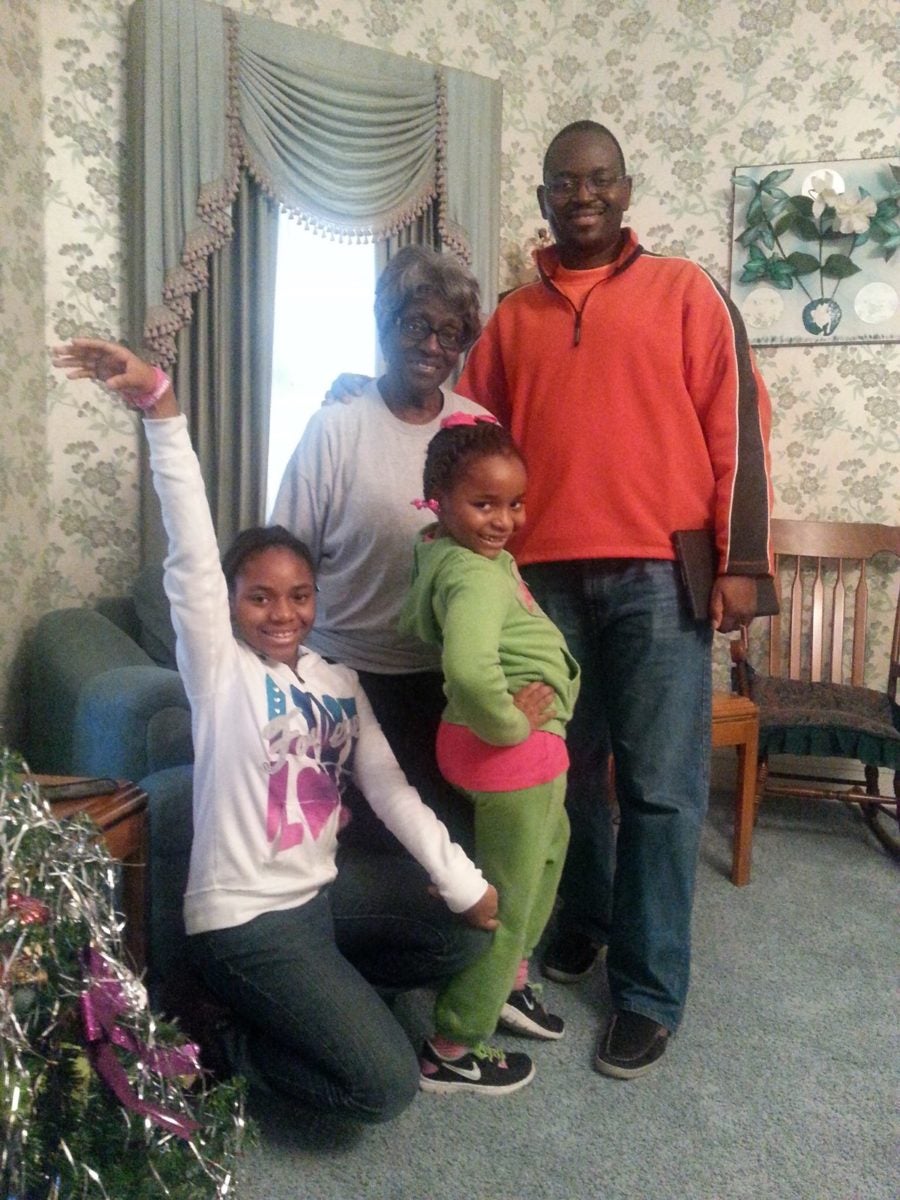
She admits that there were times when she struggled when it came with the concept of forgiveness, but her husband’s memory is what brought her back.
“I just started thinking about Clementa, and the kind of person that he was and what he was about. Clementa and I never raised our girls to hate, and I was like, ‘I can’t go around hating and then trying to teach my girls you shouldn’t hate,’ so it was a battle within myself. You’ve taken my soulmate. You’ve taken my babies’ father,” she said. “Clementa won’t be here for the father-daughter dances. My girls are going to miss out on their father walking them down the aisle.”
“But then… on the flip side, we’re not a family to hate. Clementa was a man that taught and preached about hating and so you don’t forget. You never forget, but that’s something that I placed in God’s hands, that [the killer’s] going to have to deal with within himself, and this is something that he did that he has to live with.”
In the meantime, Pinckney is focused on her girls, who are her world. They love dancing and are seriously involved. Malana, who is now 10, wants to one day double major in chemistry and culinary arts. Eliana, who turned 15 on June 1, wants to pursue a career in musical theatre and public relations. Both girls are always singing and dancing, Pinckney said.
Malana has written a book about her father, for which Pinckney is still trying to figure out publishing details. Eliana writes poetry, for which Pinckney wants to collect and also compose a book. Pinckney herself has been approached about a book, and she’s still “teeter tottering” on that.
In the meantime, Pinckney stays busy working on the foundation established in her husband’s name and looking to expand to do more things in preventative healthcare, as well as her day job and of course, her girls.
The vivacious girls always get on her case, she said with a smile, insisting that she needs to get out more, but Pinckney brushes it off, saying that there will be time for that once she makes sure that her girls are set and on the right track.
“We talk and we laugh, and I just let them know, ‘Hey, it’s about us. It’s the three of us and we’re going to be the best that we can be. Daddy always used to say his girls. I said we’re his girls.’ We’ll always be his girls. We’re the Pinckney girls, and we’re going to be successful,” she said.
But more importantly for Pinckney is that people learn to be a bit more loving, a bit less hateful,
“We should get along. We should love because if we loved more and we got along, this wouldn’t have happened. If we didn’t hate, this wouldn’t have happened,” she said. “I think that’s probably one of the big things, is just for people to be able to get along and to understand each other’s differences and to accept each other’s differences.”

